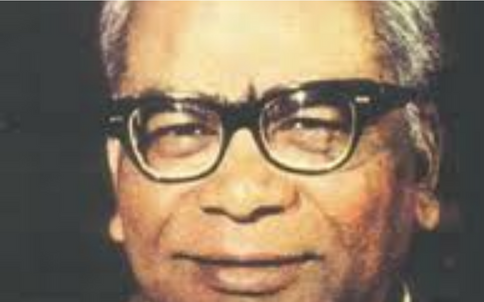Given the current political economy in India, and more particularly the naked, flagrant and vulgar destruction of the sublime values on which constitutional institutions had been constructed by the fathers of our nation, it is scarcely believable that even a handful would gather around for a book on Shri. Ram Manohar Lohia.
Not withstanding his deep admiration and respect for Panditji, Lohia was also one of his most trenchant critics both inside the institutional framework of law making and governance erected by the Constitution, and also outside in the wider world of social reform and representation of the voices of the downtrodden to the ever inclined towards deaf ears of the State. For Ram Manohar Lohia, the role of opposition was necessary for maintenance of democracy, and its soul was necessarily to be found in the act of giving voice to the voiceless.
Consequently, we have to wonder whether in this day and age, and at the inflection point we find our constitutional democracy at, whether any of Lohia’s speeches in the Parliament would have ever been allowed to remain in record and not have been expunged, and lost to the future generations if the attitudes of more recent controllers of parliamentary debate had been more extant in the early nation building years of our Republic. I wonder what the reaction of the Treasury benches, and the technocratic experts from elite communities that dominates the new hierarchical structures of discourse, have been to this summation of his speech on National Economy:
“The Government has turned into a Government of directionless experts and whatever recommendations the experts make, the Government follows them blindly. The Ministers have little knowledge……..’ [Instead] of “blindly following the recommendations of experts, [T]hey should think over the recommendations…. Because statisticians and the economists are like poisonous snakes who dance to the tune of snake charmers…. If you are incapable of playing the flute, the results are bound to be disastrous.”[1]
Nothing could have been a more direct attack on the claims by technocratic experts from elite communities that they “know” about what the “nation” needs, and how the trickle down economies will eventually lift. That small snippet I have selected defiantly foregrounds the need for the political processes to have a proper ear to the ground, and especially amongst the poor and the downtrodden masses, and for the political process to be ever vigilant of pelf of the national income and increase in suffering of those at the bottom of the socio-economic hierarchy. In a world in which we talk about ‘national champions” in private sector, to claim pole positions on the global stage by disregarding every law and institutions regulating the markets, I wonder what the reaction would have been.
A good friend of mine, Shri S. Jaipal Reddy had warned Shri PV Narasimha Rao and Shri Manmohan Singh, way back three decades ago during debates on transformation of the Indian political economy in 1991 – we can only hope that “the market is not functioning as the State, and the State as the market”. Some of the recent occurrences with respect to one or two industrialists, and their identification with India on the tune of the disastrous “India is Indira and Indira is India”, should clearly intimate to us that what Jaipal had warned about may have come to pass. And it is precisely these dangers that Lohia had warned us so eloquently way back in 1963.
[1]Lok Sabha Debates, September 6, 1963
—————————————————————————————-
(The above piece is from the notes of Justice Sudershan who should have been the guest of honour at the meeting where Ramachandra Guha released A. Raghu Kumar’s book, “Revisiting Ram Manohar Lohia, Challegnes to the Theory and Practice of Alternative Socialism. He could not attend the Saturday meeting due to some personal reasons)




